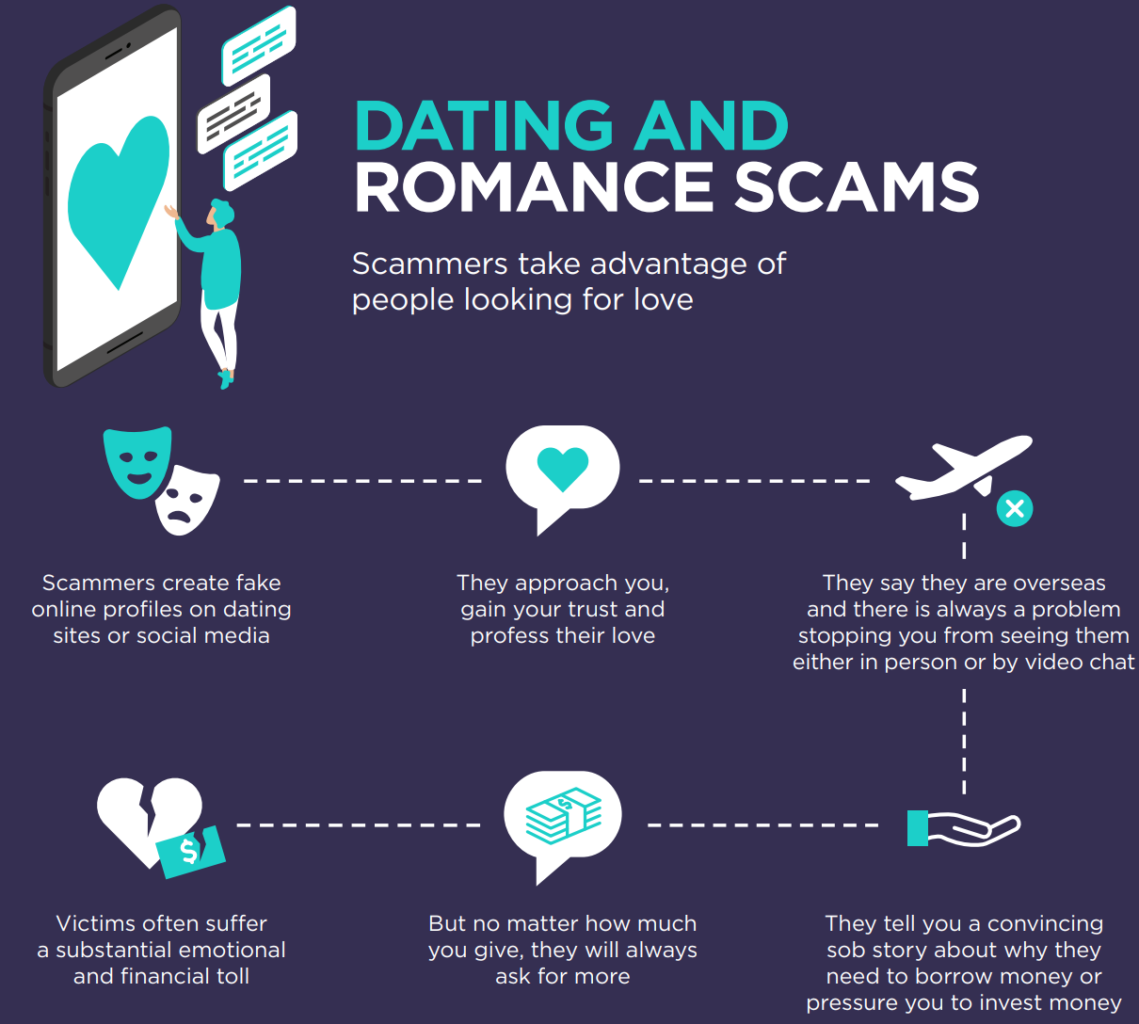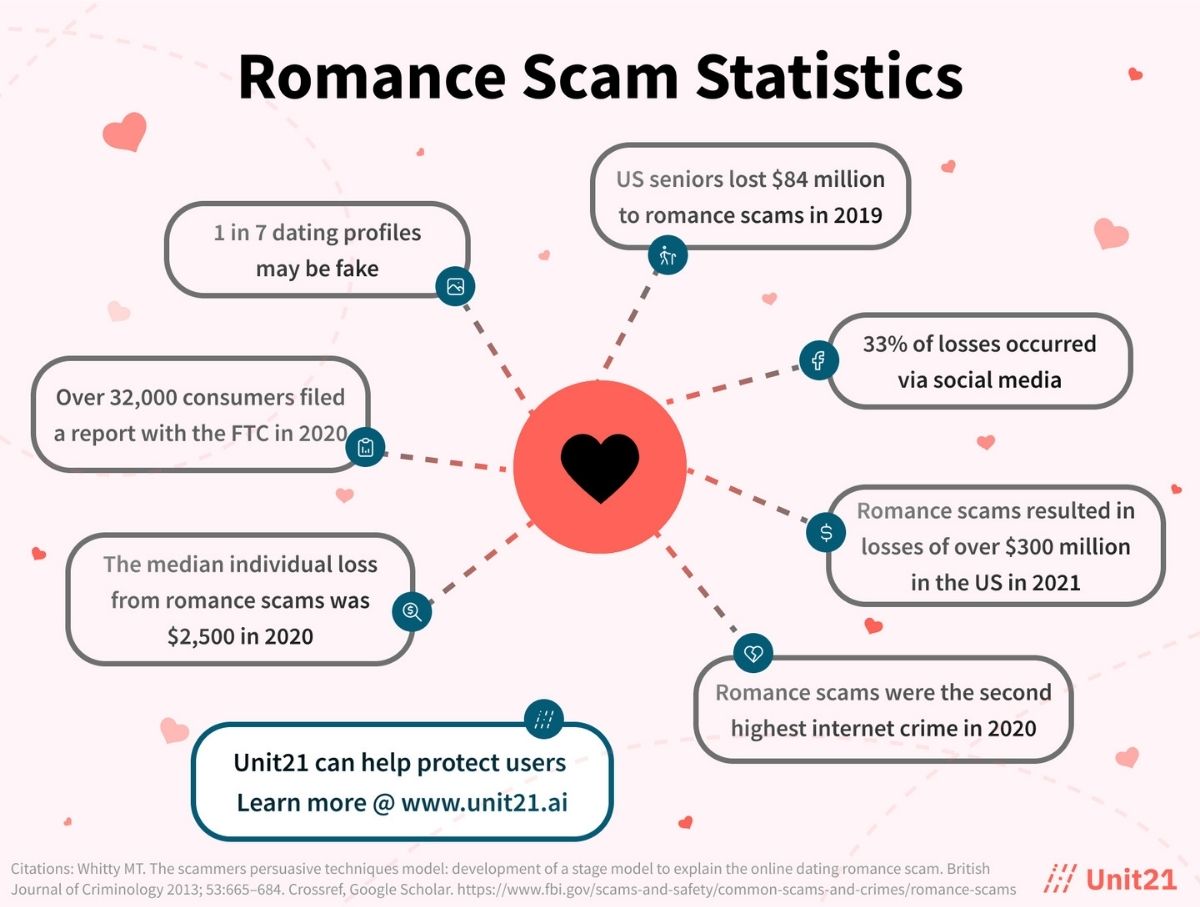Romance scams have entered a new era of sophistication with artificial intelligence and deepfake technology making it increasingly difficult to distinguish genuine connections from fraudulent ones. The evolution of these scams goes beyond traditional catfishing, as criminals now employ advanced AI tools to create highly convincing fake profiles, complete with generated images, videos, and even real-time voice conversations.
According to Action Fraud, the average victim loses £13,000 to romance scams, with some cases resulting in life-changing financial losses and significant emotional trauma. Whilst the technology behind these scams becomes more sophisticated, understanding their mechanisms and recognising the warning signs remains your best defence.
This guide will equip you with practical knowledge and tools to protect yourself from AI-powered romance scams, ensuring your journey to finding genuine connections online remains safe and secure. Recent reports indicate that AI-powered romance scams resulted in over £88 million in losses during 2023, with real-time video and voice manipulation becoming primary tools for fraudsters.
What Are AI Romance Scams?

AI romance scams represent a sophisticated evolution of traditional dating fraud, leveraging artificial intelligence to create incredibly convincing fake personas. The integration of AI technology has transformed romance scams from simple fake profiles to dynamic, interactive deceptions that can adapt and respond in real-time.
Voice cloning technology can now replicate a person’s voice with just a few seconds of audio sample. Modern voice cloning can fool voice authentication systems 83% of the time, and human listeners find it increasingly difficult to distinguish between real and synthetic voices. Deepfake video technology allows scammers to create or manipulate video content, making it appear as though they’re engaging in live video calls.
“Deepfake video technology has become so advanced that basic consumer software can now create convincing real-time video manipulation.”
UK National Fraud Intelligence Bureau
Warning Signs of AI Impersonation
Detective Inspector Claire Stevens from the Cyber Crime Unit states, “The key to protecting yourself lies in recognising subtle inconsistencies that even the most sophisticated AI systems can’t fully eliminate.”
Romance Scam warning signs to look out for:
- Profile images that seem too perfect or professional, often with inconsistent lighting or backgrounds
- Video calls with slight delays in emotional responses or unnatural eye movements
- Voice conversations where the tone or accent subtly changes during the call
- Messages that feel template-like or contain unusual patterns of speech
Research from the Internet Crime Complaint Center (IC3) shows that scammers often follow predictable patterns despite using advanced technology. They typically escalate emotional involvement quickly while creating scenarios that prevent video chats or meeting in person.

Red Flags in Communication Patterns
Beyond the technical signs, emotional manipulation tactics enhanced by AI often follow recognisable patterns. Watch for potential red flags such as rapid declarations of love, persistent requests to move communication off dating platforms, or elaborate stories explaining why they can’t meet in person.
As relationship psychologist Dr. Emma Roberts notes, “AI-powered scammers often use sophisticated emotional analysis to tailor their responses, making their manipulation more effective than traditional scams.”
Conversations related to personal finances, investments and asking for financial aid should be immediate warning signs. Be wary of anyone who:
- Claims to be investing in cryptocurrency or rare opportunities
- Discusses their financial success but needs urgent, temporary help
- Sends convincing but fraudulent investment documents or statements
- Uses emotional manipulation to rush financial decisions
Banking security specialist James Chen from Barclays warns, “Modern romance scammers use AI to create elaborate backstories and supporting documentation that can fool even financially savvy individuals. Always verify financial requests through official channels, regardless of how convincing the story may seem.”

Protection Strategies
Protecting yourself from AI-powered romance scams requires a multi-layered approach combining technical awareness with common sense. Cybersecurity expert Mark Williams emphasises, “The best defence is a combination of digital verification tools and traditional safety practices.”
Protecting yourself from AI-powered romance scams requires vigilance and a comprehensive security approach. As cybersecurity expert Mark Williams notes, “Modern romance scams are sophisticated operations that require equally sophisticated defence strategies. It’s no longer enough to just be cautious – you need to be proactively protective.”
Digital Verification Toolkit
| Tool Category | Specific Tools | Best Practices |
|---|---|---|
| Image Verification | Google Images, TinEye, PimEyes | Check multiple angles of profile photos; look for image manipulation signs |
| Video Authentication | InVid, WeVerify | Analyse video metadata; watch for deepfake indicators |
| Voice Analysis | Deepware Scanner, Reality Defender | Listen for unnatural speech patterns; verify voice consistency |
Profile Verification Process
If you believe you or someone you know may be communicating with a scammer there are some steps you can take. The list below is a systematic approach to help you verify the validity of new friendships and online connection requests.
Cross-reference profile information across multiple platforms
- Request video chat verification
- Ask for specific real-time actions
- Watch for delayed responses or unnatural movements
- Pay attention to lighting and background consistency
Request video chat verification
- Ask for specific real-time actions
- Watch for delayed responses or unnatural movements
- Pay attention to lighting and background consistency
Test conversation authenticity
- Ask detailed questions about claimed expertise
- Note response patterns and conversation flow
- Watch for avoidance of specific topics
Financial Protection Measures
Banking security expert Sarah Chen recommends these essential financial safeguards:
- Set up dedicated dating security measures: – Create a separate email for dating platforms – Use a virtual phone number for initial contacts – Never share banking app details or screenshots
- Establish strict financial boundaries: – Never send money or cryptocurrency – Don’t accept funds to transfer or hold – Avoid sharing investment opportunities
- Monitor your accounts closely: – Enable all banking security features – Set up fraud alerts – Regularly check credit reports
Personal Information Security
Digital privacy consultant James Moore advises: “In the age of AI scams, protecting your personal information is crucial. Even small details can be used to build convincing impersonation attempts.”
Essential Online Privacy
- Use privacy settings on all social media accounts
- Avoid sharing identifying workplace or location details
- Never reveal family members’ names or details
- Keep personal achievements and milestones private initially
- Use watermarked or low-resolution photos on dating profiles
- Avoid sharing device or browser information
Regular Security Maintenance
Implement these ongoing security practices:
- Weekly review of active conversations for red flags
- Monthly audit of privacy settings across platforms
- Regular updates of passwords and security questions
- Periodic check of linked devices and accounts
- Review of recent financial transactions
“The key to protection isn’t just implementing these measures once – it’s about maintaining vigilance and regularly updating your security practices as scammer tactics evolve.”
Dr. Emma Phillips, Cyber Psychology Expert
Trust Building Protocols
Establish a systematic approach to building trust:
- Start with text-based communication only
- Progress to voice calls after 2-3 weeks
- Move to video calls with verification steps
- Consider in-person meeting in safe, public locations
- Maintain boundaries regardless of emotional connection
Remember: legitimate romantic interests will respect and understand your need for security measures. Anyone who pressures you to bypass these protections should be treated with extreme caution.

What to Do If You’re Targeted
If you suspect you’re being targeted by an AI romance scammer, taking immediate action is crucial. Former fraud investigator Rachel Chen advises, “Document everything before cutting contact – screenshots, messages, and any financial transactions will be vital for investigations.”
Immediate Steps To Take:
1. Cease all communication immediately
2. Report the profile to the dating platform
3. Contact your bank if you’ve shared financial details
4. Document all interactions and evidence
Report Romance Scams In The UK
You can report online scam incidents to these official UK channels.
– Action Fraud: www.actionfraud.police.uk
– Local police cyber crime unit
– National Cyber Security Centre: www.ncsc.gov.uk
– Dating site’s security team
Online Scam Support & Recovery
Victims of romance scams often face both financial and emotional trauma. Dr. Lisa Thompson, a trauma counsellor, notes: “The psychological impact of AI romance scams can be particularly severe because the deception feels so real and sophisticated.”
Romance Scam Support Resources
- Victim Support: www.victimsupport.org.uk
- Mind UK: www.mind.org.uk
- Citizens Advice: www.citizensadvice.org.uk
- Get Safe Online: www.getsafeonline.org
- Take Five Campaign: takefive-stopfraud.org.uk
- Cyber Aware: www.ncsc.gov.uk/cyberaware
Looking Ahead At Online Safety
As AI technology continues to evolve, staying informed about new scam techniques is crucial. The UK’s National Crime Agency suggests that “AI-powered scams will become increasingly sophisticated, making ongoing education and awareness essential for online dating safety.”
Remember that while technology makes these scams more convincing, the fundamental rules of online safety remain unchanged: verify independently, protect your personal information, and never send money to someone you haven’t met in person.
